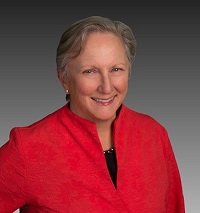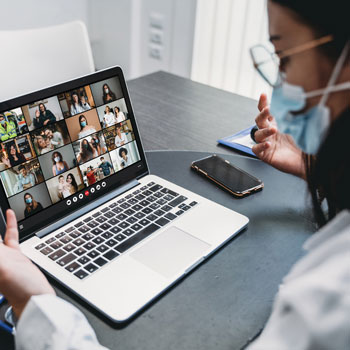What Dobbs might mean for medicine
The Supreme Court's recent decision in Dobbs v. Jackson Women's Health Organization has far-reaching implications for both patients and physicians.
On June 24, in a 6-3 vote, the Supreme Court overturned Roe v. Wade, the 1973 law that protected a woman's right to an abortion. The decision in Dobbs v. Jackson Women's Health Organization, which was widely anticipated following a leaked draft of the majority opinion in May, has far-reaching effects on health care and the practice of medicine. ACP Internist talked to Sue S. Bornstein, MD, FACP, Chair of ACP's Board of Regents and executive director of the Texas Medical Home Initiative in Dallas, about some of the implications for both patients and physicians.
Q: What is ACP's position on the recent Supreme Court decision?
A: One of the strengths of ACP, our policymaking process, is that it is iterative and proactive rather than reactive. It often begins with a resolution from the Board of Governors. In 2018, ACP released a policy paper on women's health that began just that way. In it, we explicitly mentioned abortion, that we supported an individual's right to choose whether or not to continue a pregnancy. So we have had policy about this.

We knew, of course, like everybody in this country did, about the leaked Supreme Court decision. That gave the Health and Public Policy Committee and the Board of Regents a little bit of time to look at our policy again and make some very minor refinements to reflect what we believed was going to happen and in fact did happen. The policy previously referenced Roe v. Wade and now references Dobbs as the standard, but essentially the content of the policy is unchanged. There are a number of principles we support, patient autonomy being really one of the most important. Patients should have autonomy on matters affecting their health, including reproductive decision-making rights.
ACP also thinks that privacy is a very big part of this. There are so many concerning aspects about intrusion into privacy and people's ability to make these private decisions. Clearly the government intrusion into the patient-physician relationship is very concerning, and we have always said that there should not be excessive or unnecessary intrusion into this relationship. We have said and we continue to say that we believe everyone should have access to a full range of reproductive health services, including abortion.
Q: What are some of the potential effects of this decision?
A: I'm 68 years old, so I was alive before Roe v. Wade. I graduated from high school in 1971, and I had one acquaintance who committed suicide because she couldn't obtain an abortion, and another who died of complications of a septic abortion. For somebody like me, who really has seen the other side of it, what it can look like and probably will look like, that makes it very real.
Even though the Dobbs decision is said to only apply to abortion, I don't think anybody is taking that to the bank, so to speak. There are implications regarding the whole concept of rights that are “not deeply rooted in the Nation's history and tradition,” which was the terminology used in Dobbs. The obvious ones that may be in danger are the Obergefell decision on LGBTQ marriage and even the Griswold decision on contraception.
Another aspect that is particularly concerning is the criminalization of medical care. Some states, like my own state of Texas, got ahead of the game here. In the last legislative session, Texas passed legislation that would in fact criminalize abortion, and not only that, there's a bounty aspect to it. If you reported someone that provided abortion or was going to have an abortion, you could be rewarded for that. The whole notion of criminalization for physicians, and for patients as well, is absolutely chilling.
Q: What are some of the potential equity issues?
A: I recently signed off on a letter that ACP sent to Speaker [Nancy] Pelosi and Kevin McCarthy, and one of the things we talked about was equity. Even in states with statutory protections, access to abortion could be diminished. In states where abortion is illegal, people who have the means to travel to a different state will do so, presumably, but people who are going to be a significant portion of those seeking abortion care or treatment are not going to be able to do that. And irrespective of this problem, we have workforce shortages in health care throughout the country, so even in states where abortion is legal, they may not have the capacity. It's kind of a cascading effect. You can't just say, “Oh, well, you can travel.” For example, in my state, people could in theory travel to New Mexico, but if you're in the tip of northeast Texas, that's about a 14-hour drive.
There are also other equity issues, the obvious one being that this country has one of the worst maternal mortality rates in the world. That's pretty shameful considering the amount of technology and the sophistication that we have in our medical care, but it just doesn't always get to the people that need it. It's very concerning that Black and Latinx women will really bear the brunt of this. Black women, especially, have the highest maternal mortality rates, and so if a Black woman is forced to take a pregnancy that may be problematic in terms of her health to term, that is no doubt going to increase the maternal mortality crisis.
Q: What actions has the federal government taken in response to the Dobbs decision?
A: The administration is trying hard, I believe, to ameliorate some of these effects of Dobbs. The president signed an executive order safeguarding access to reproductive health services, including abortion. There has been a lot of activity around protecting privacy; the Office of Civil Rights has a ruling about that, and how people cannot be made to report things.
The other thing that just came out recently was from HHS, about EMTALA [the Emergency Medical Treatment and Labor Act]. One of the biggest concerns has been that a pregnant person could present to an emergency department with unclear distress from something like an ectopic pregnancy, which can literally be fatal if not treated appropriately. There were concerns that if a person comes in, even in extremis, that physicians who treat her may face legal issues.
CMS did come out recently with a memorandum that EMTALA protects physicians if a pregnancy is terminated due to an emergency situation. That's really important because it's a federal law that should preempt any state law, if it survives court challenges. But again, these state laws have created an atmosphere for physicians of “Well, if I do something wrong, two things: The patient could die, or I could go to prison.” It's not a very good decision tree for clinicians to have to deal with. It's really unheard of.
Q: How else might this decision affect the patient-physician relationship?
A: Our obligation is always going to be to do what's in the best interest of the patient, and that never changes. When roadblocks are placed in front of us, unnecessary intrusion, that's tough. Another thing that will be affected is training for physicians to learn to perform abortions, because already, a lot of training programs are shying away from this because of the climate that we live in. Even in places where abortion is legal and continues to be legal, there may not be people trained to do it. That's a big concern as well.
Q: Can individual internists advocate for political action on this topic?
A: Absolutely. I think most physicians, irrespective of their own personal moral or religious beliefs, can rally around principles like patient autonomy, the right to privacy, government intrusion, and criminalization [of a medical procedure]. Those things resonate with most people. There will always be some people who don't agree, but I think if you put it in those terms, most people will say, “Yeah, this is not right.”
The College has found it to be very, very productive to collaborate with other organizations. When the Dobbs decision first came out, ACP, the American Academy of Pediatrics, the American College of Obstetricians and Gynecologists, and the American Academy of Family Physicians came out with a joint statement condemning it, representing something like 600,000 physicians. Then the Council of Medical Specialty Societies came out with something similar, so that's 800,000 physicians represented. I think we're seeing increased collaboration among medical specialties and organizations in this area, and I think that that can be powerful.
But individual physicians can absolutely advocate for change by writing letters to the editor, for example, or opinion pieces, and by finding other ways to use their credentials in a way that can be persuasive. At the end of the day, people still do generally respect physicians. Individual physicians should absolutely use their voices.




